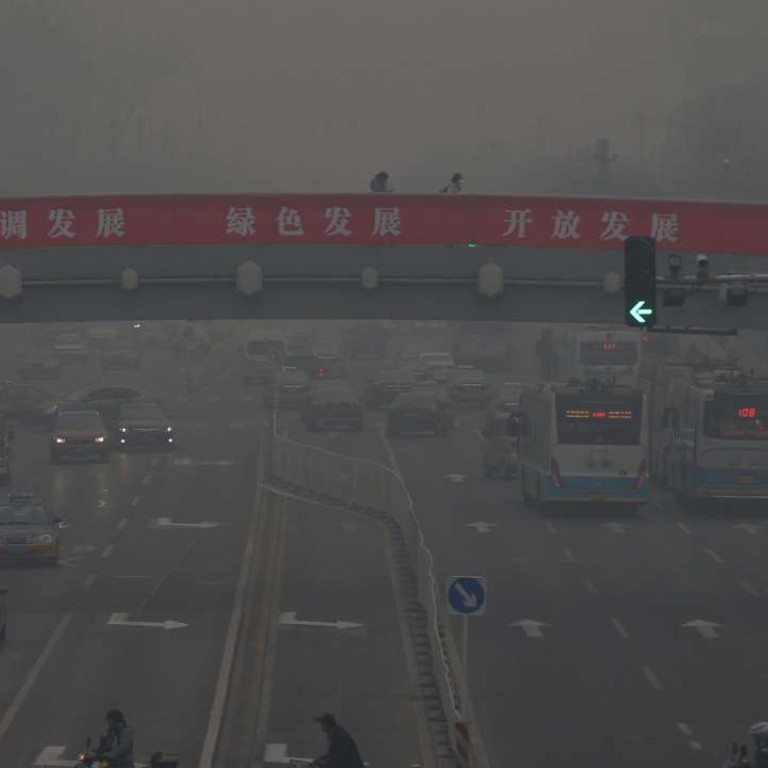
Beijing considers classifying worst smog events as natural disasters
City officials say notorious bad air days are part man-made, part natural but sceptics says it’s a move by officials to dodge responsibility to tackle air pollution
Beijing municipal authorities are mulling whether to classify the city’s notorious smog events as “meteorological disasters” along with torrential rain, blizzards and droughts among others, according to draft regulations on natural disaster mitigation submitted on Thursday.
Liu Zhengang, director of the municipal government’s legal affairs office, said smog as was “a combined result of man-made pollution and natural weather conditions” so it was appropriate to call the phenomenon a meteorological disaster, the Beijing News reported.
Both Tianjin and Hebei – Beijing’s neighbours – have classified smog as weather disasters, so Beijing authorities considered it “necessary” to adopt the classification as well for “regional cooperation on tackling smog”, the report said.
According to the proposals, which stipulate prevention measures and emergency responses, meteorological disasters caused 111 deaths in the capital between 2001 and 2014, and caused direct economic losses totalling 22.5 billion yuan (HK$26.6 billion).
The regulations call for Beijing to establish “wind corridors”– areas where, for example, building height and placement will be regulated to harness natural breezes to channel smog away from urban areas, the report said.
Some Beijing residents were sceptical about the proposals, saying the move to classify smog a natural catastrophe was a move to exonerate the government of its responsibility to tackle chronic pollution.
“Smog is a man-made catastrophe, not a natural disaster,” reads a comment on Weibo, a popular social media site.
“Beijing [government] was able to roll out blue skies whenever there were key political meetings and events, so is that to say we have learned how to conquer natural disasters?” another commentator remarked.
Beijing [government] was able to roll out blue skies whenever there were key political meetings and events, so is that to say we have learned how to conquer natural disasters?
The city government has tried various measures in recent years to tackle air pollution, including closing down polluting factories and limiting car use. But the city’s annual average PM2.5 levels – referring to the airborne microscopic particulates considered most dangerous to human health – still stood at 80.6 micrograms per cubic metre last year, eight times the safety limit recommended by the World Health Organisation.
Whenever the city’s air pollution reaches unbearable levels for days at a time – an event dubbed by locals as an “airpocalypse” – relief usually only follows the arrival of a weather change of wind or rain to clear away the filthy air.
Some citizens jibe that Beijing’s “environmental protection depends mainly on blowing air”.

